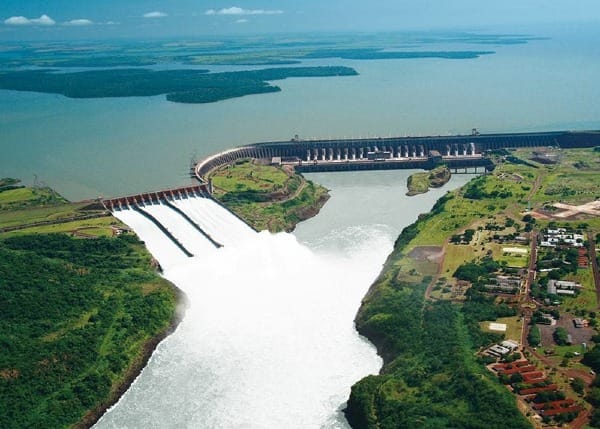

Paraguay is reevaluating its proposed Bitcoin mining ban, considering the economic advantages of using its energy surplus for local mining operations.
Paraguayan senators have postponed the advancement of a bill that initially sought to enforce a ban on Bitcoin mining. This proposed legislation, which was introduced on April 4th, aimed at placing a 180-day moratorium on Bitcoin mining activities amid concerns over illegal operations impacting the electricity supply. The pause in the bill's progress comes as the country's lawmakers consider an alternative use for their energy surplus—powering Bitcoin mining operations instead of exporting it at a lower value.
The reconsideration of the bill follows discussions surrounding the economic benefits that Bitcoin mining could potentially bring to Paraguay. Senator Salys Buzarquis was quoted on X (Twitter) stating, “Today we approved a Declaration whereby the Senate of Paraguay supports local and foreign investments in infrastructure and urges the Ministry of Industry to study the economic advantages of selling our surplus energy to the crypto mining industry.” A public hearing is scheduled for April 23 to debate the merits and drawbacks of Bitcoin mining in the country.
Today We approved a Declaration WHEREBY THE SENATE OF #PARAGUAY SUPPORTS LOCAL AND FOREIGN INVESTMENTS IN INFRASTRUCTURE AND URGES THE MINISTRY OF INDUSTRY TO STUDY THE ECONOMIC ADVANTAGES OF SELLING OUR SURPLUS ENERGY TO THE #CryptoMining INDUSTRY. #BITCOIN pic.twitter.com/1sxptd5c8E
— Salyn Buzarquis (@SalynBuzarquis) April 10, 2024
Paraguay's Itaipu dam, renowned for its massive 14-gigawatt power output, which is shared with Brazil, is at the heart of these discussions. Paraguay makes use of only a portion of this generated power, with the excess currently being sold to Brazil at a lower price. By redirecting this surplus energy to local Bitcoin miners, the National Electricity Administration (ANDE) could see substantial financial gains.

Senator Buzarquis outlined in a letter to Congress that licensed digital asset miners could contribute $48 million to ANDE by 2024, with projections soaring to $125 million by 2025. He highlighted the potential for a 45% net profit margin if the energy is sold to Bitcoin miners at $40 per megawatt-hour, contrasting with the current subsidized rate of $10 per megawatt-hour when sold to Brazil. This could result in an annual revenue of $73 million and an additional $17 million in value-added tax for the Treasury.
Jaran Mellerud, co-founder and chief mining strategist of Hashlabs Mining, estimated that prohibiting Bitcoin mining could cost Paraguay more than $200 million annually, assuming there are 500 MW of legal miners with operating expenses of $0.05 per kWh. Representatives from the Bitcoin mining industry have engaged in constructive meetings with local government officials, indicating a collaborative effort to address the issue.
The decision to explore monetizing excess energy through Bitcoin mining comes as the industry anticipates the Bitcoin halving event on April 20, which will reduce miner rewards from 6.25 BTC to 3.125 BTC. This could have significant implications for the profitability and sustainability of mining operations.
As Paraguay navigates the complexities of integrating Bitcoin mining with its energy policies, the upcoming public hearing will be crucial in determining the future direction of Bitcoin mining in the country.